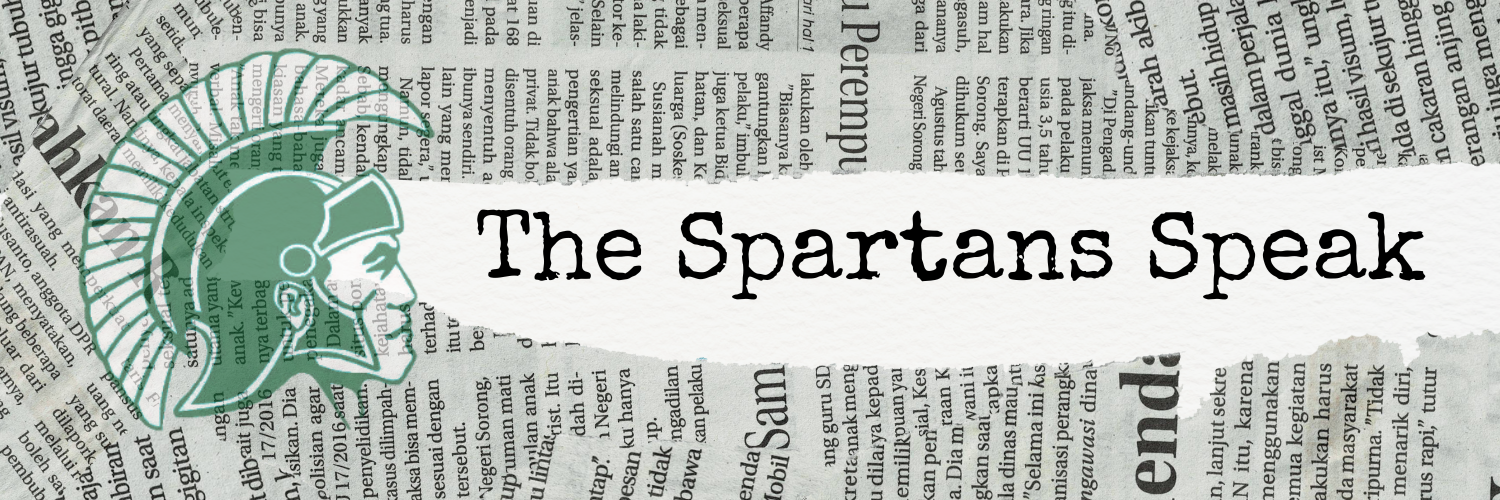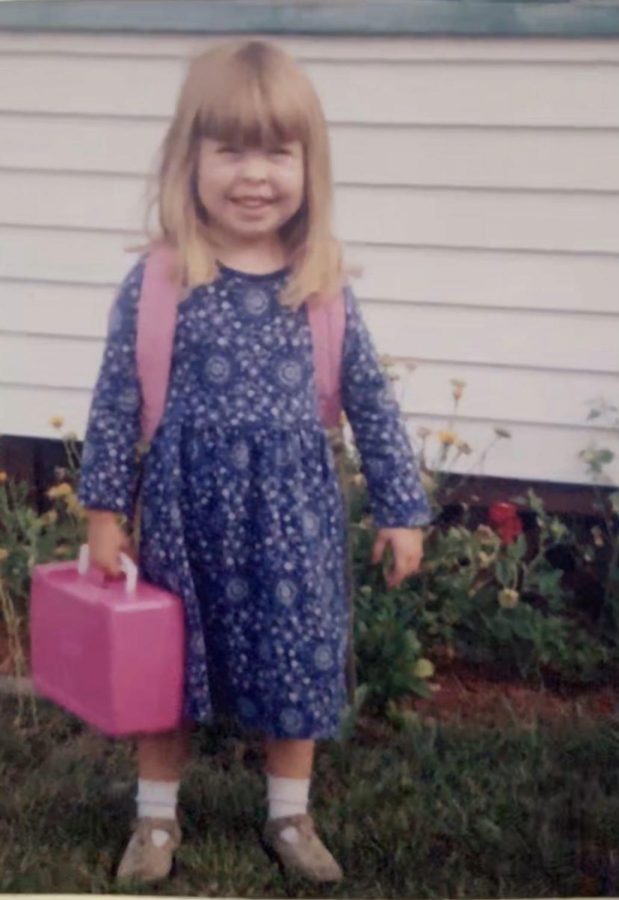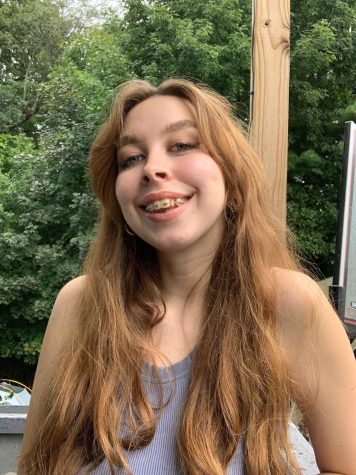Accepting the f-word
Staff writer Emily Polsin is seen here as a young girl rocking the pink lunchbox (photo courtesy of Emily Polsin).
March 24, 2022
March is Women’s History Month, so let’s talk about the female experience.
I’m going to preface this by saying that I obviously cannot speak on behalf of every woman, nor do I believe that I’ve been profoundly oppressed. When it comes down to it, I am a white, cisgender female, and countless other people have dealt with far more puzzling and traumatic ideas.
This is my opinion, based on my life as a female.
When I was younger, there was nothing I loved more than being girly. I adored wearing skirts and dresses. All I ever wanted to do was sit on the floor of my playroom with my Barbie dolls. I was fascinated by all things feminine.
As I got older, however, I started to notice that being hyperfeminine did not project positive things about my character. “Girly-girls” were never the main character of the movie. They were the “mean girls” and the vacuous spoiled bimbos.
So I began hating those skirts and dresses and got rid of my Barbie dolls.
As I reached middle school, my life then became centered around boys. If I didn’t have a meaningless crush on someone, I had no identity. Everything I wore, everything I said, every decision was based on earning a boy’s approval.
I know it sounds dramatic, but I was 13 years old so pretty much everything was dramatic.
Many women experience times in their life where they struggle to define femininity for themselves. Media teaches us that being feminine is associated with weakness. Women are supposed to be delicate and dainty. Conversely, strong women, who are aggressive and driven to succeed, are often seen as feminists or bitches (as if this is a bad thing).
In other words, there’s no winning when it comes to the media’s depictions of women.
I used to be embarrassed to say I’m a feminist. Again, this has to do with that “living my life to please men” crisis. But now, I’m the first person to stand up for feminism, as well as call out anyone who makes sexist claims.
Despite what the media may project, let’s make this clear: If you are not a feminist, you are a misogynist. Feminism is based on equality, and any argument trying to prove otherwise is misinformed.
Now that I am 18 years old and a legal adult, I look back on my childhood, and I am glad I came full circle. What femininity means to me is completely different from what it means to the person sitting next to me. But that’s okay. My femininity belongs to me and is not controlled by anyone else, especially boys.
My closet is once again filled with skirts and dresses. My favorite color is pink, and I pay far too much to get my nails done. I love getting ready in the morning. My day-to-day routine is filled with stereotypes that would identify me as the ditz from my favorite movies as a kid.
But being delicate and dainty does not mean I’m weak, and being a strong feminist certainly doesn’t make me a bitch.



